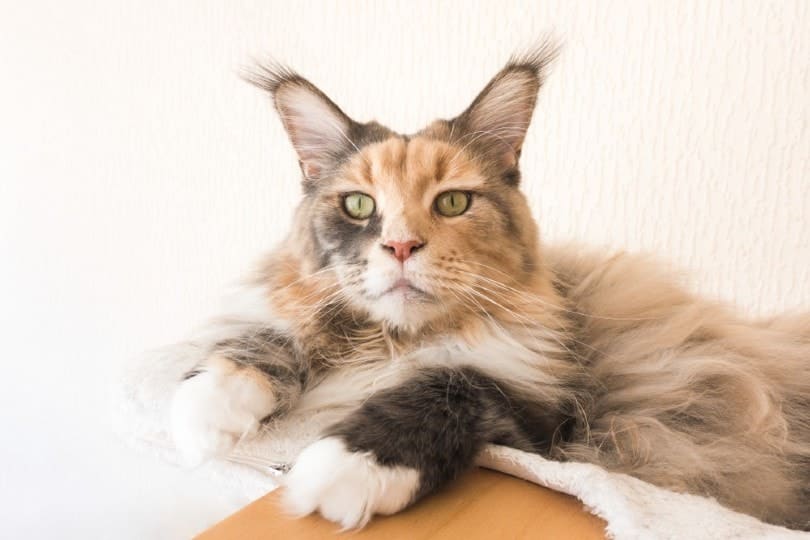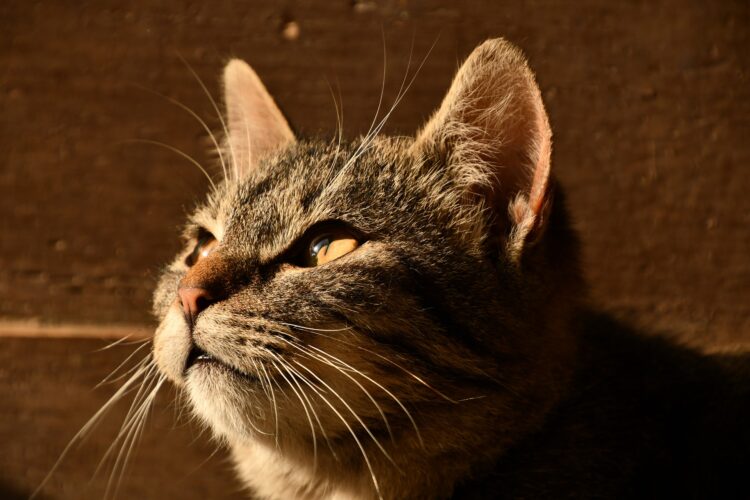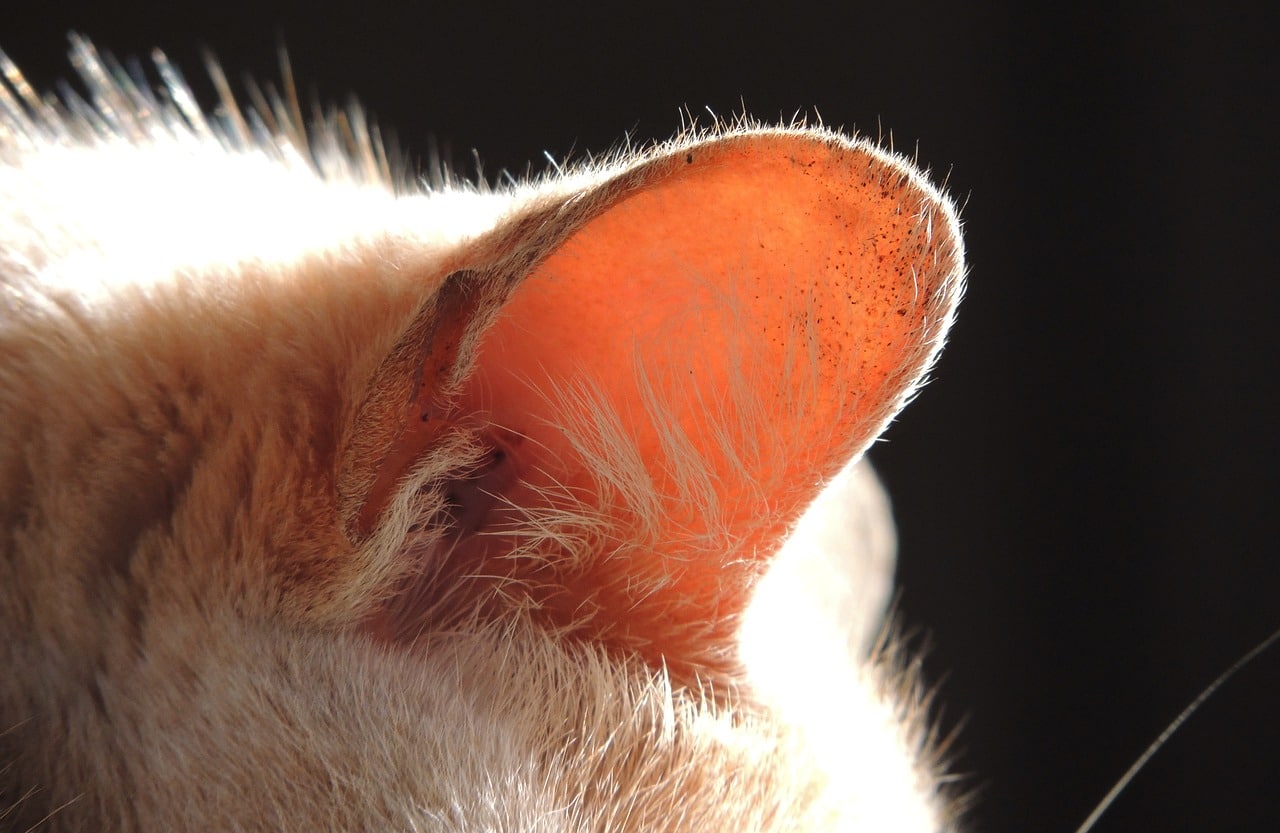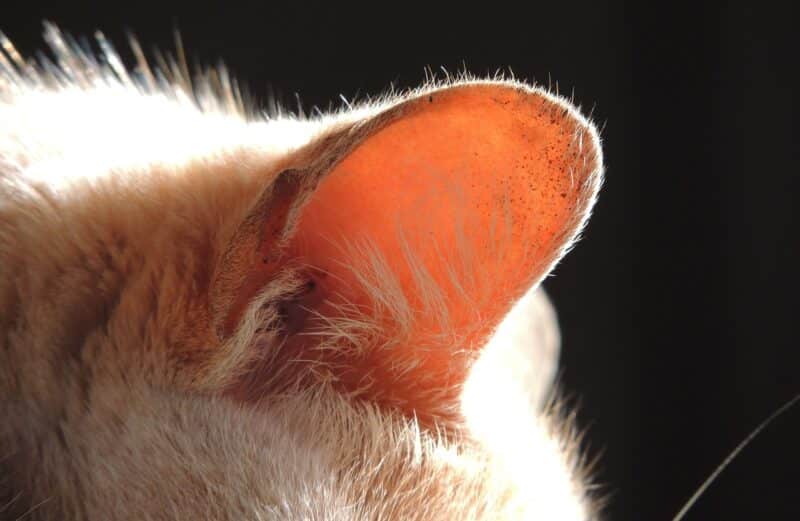We all know cats are cute and snuggly. They even have fuzzy ears. But what’s up with that cute fuzz inside your cat’s ear? Does it have a purpose? Or is it just extra hair? I have always wondered about this, so I decided to investigate!
As it turns out, that fluffy bit of fur inside your kitty’s ears is called ear furnishing, and it serves a much greater purpose than just making your cat look cute. Let’s find out more!
Types of Fuzz in Cat’s Ears
Cats can have two different kinds of fur in their ears. The first is an ear tuft. These are sometimes called “lynx tips” and are the fur that grows out from the tops of cat ears. Not all cats have ear tufts, but their job is to keep dirt and debris out of the ears and filter sound into the ear canal.
Cat ear furnishings are the hairs that are found on the inside of a cat’s ears. Its purpose is to help cats pick up tiny sound vibrations from sounds that are quiet or far away. Ear furnishings are part of why cats have such good hearing. Most domestic cats have some form of ear furnishing, regardless of their breed.

Cat Ear Anatomy
The basic structure of a cat’s ear is the same as that of most mammals. They have three structural areas: the outer ear, middle ear, and inner ear. The outer ear consists of the pinna, the part you see, and the ear canal. Cats have mobile pinna, meaning they can turn their ears in different directions to catch the sound. They can also move each ear independently of the other.
The middle ear is made up of the eardrum, and tiny bones called ossicles. These bones vibrate and transmit sound waves to the inner ear. Sensory cells in the inner ear convert the vibrations to electrical energy and send messages to the brain through the auditory nerve.
The inner ear serves a dual purpose. It contains cells for receiving sound waves, but it is also part of the vestibular systems, which provide balance and spatial orientation. Your cat’s ears tell them where their body is relative to the world around them, allowing them to balance and jump effectively.

Interesting Facts About Cat Ears
Now that you know what the cute fuzz inside your cat’s ears is, you might be curious to know some other fun facts about cat ears.
- A cat’s middle ear is divided in half by a septum—something unique among mammals but also something that makes it difficult to resolve middle ear infections.
- The folds of skin that form “slits” on the outside of the cat’s ear are called Henry’s pockets. Vets aren’t sure what the purpose of Henry’s pockets is or if they serve any purpose at all.
- Cats hear lower and higher frequencies than both people and dogs.
- White cats with blue eyes have a higher incidence of deafness than cats of any other color.
- Some cats have a genetic mutation that gives them four ears, with extra pinnae behind the main two.
- The ear canals of cats are self-cleaning.
- Cats are born deaf. They are an altricial species, meaning they are born without fully functioning sensory systems. Their ear canals are sealed at birth and don’t open until about 10-14 days of age.
- The temperature of your cat’s ears can tell you if they are stressed. Studies show that only the right ear responds to hormonal changes, not the left.
- There are 32 different muscles that move your cat’s ears.
- A cat’s ears and ear position indicate a wide variety of emotions, from happiness to relaxation to aggression.
Final Thoughts
I love learning about our furry friends, and I hope you do, too! It turns out that the cute fuzz inside your cat’s ears is there to help funnel sound into the ear canal. This ear furnishing is also part of your cat’s self-cleaning mechanism for their ears. While some cat breeds have more prominent ear furnishings than others, most domestic breeds have them in some form. Cat’s ears are finely tuned systems that give them some of the best hearing of any domestic mammal breed. Hopefully, you now have a better understanding of how they work and what makes them special.
Featured Image Credit: TRAPHITHO, Pixabay






